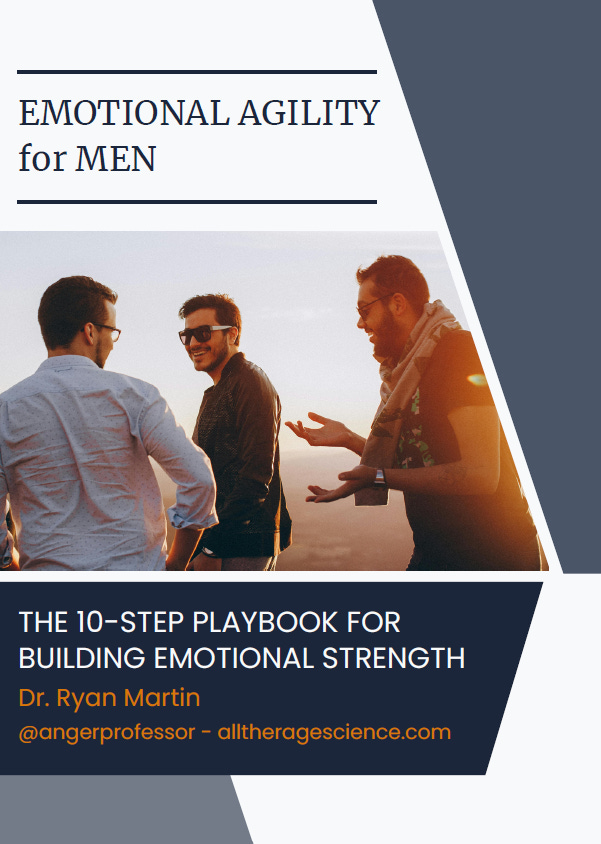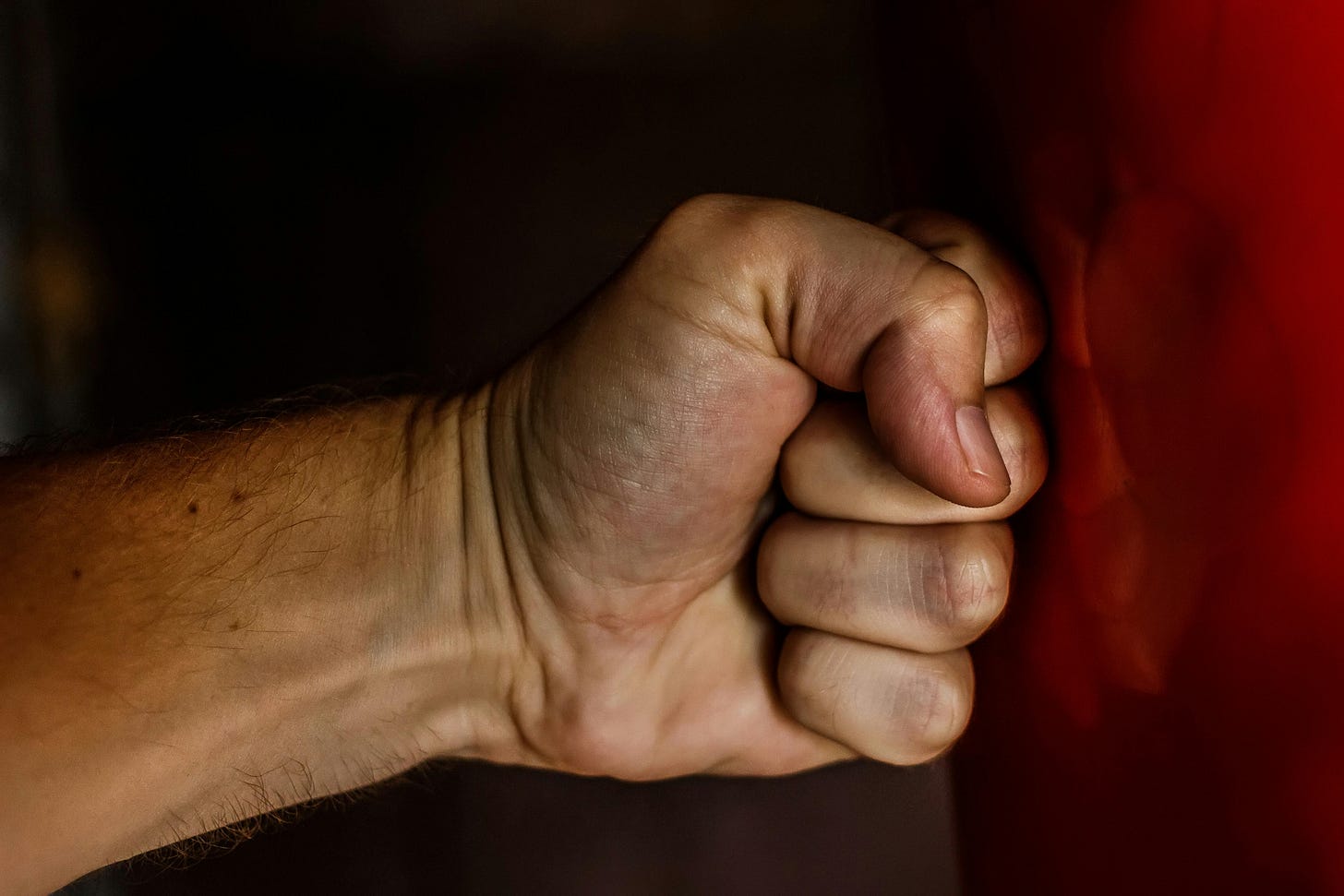The Male Anger Epidemic: What Four Years of Data Reveals About Men and Rage
Understanding the roots of modern male anger (and what to do about it).
*Disclaimer… this is not a shaming post. I didn’t write this to attack men for being angry or even to say that their anger is unwarranted. This is meant identify what I and many others believe is a serious social problem (a problem I’m committed to addressing).
I’ve been collecting data on anger via The Anger Project1 for the last four years. Recently, after listening to an episode of Theo Von’s podcast This Past Weekend featuring Dr. Scott Galloway, I decided to take a deeper dive into the data by gender. I came across three really compelling findings that say a lot about what’s happening in the United States right now… culturally, politically, socially, etc.
I’m going to unpack each finding and discuss why I think these findings are so important.
Finding 1: Men report getting angry more often than women
Men are getting angry much more often than women. Take the following:
60% of men report getting angry at least once per day (20% say once a day and 40% say multiple times per day).
Only 38% of women report getting angry at least once per day.
This is interesting because it’s a very different finding than what we’ve long believed. Conventional wisdom has long held that men and women got angry at the same frequency but men tended to express it outwardly and women tended to suppress it or better control it.
This data, though, controls for that by simply asking- after defining anger for them- “how often would you estimate you become angry” and providing options ranging from “less than once a month” to “a few times a day.” And what we’re seeing is that men report getting angry much more often than women.
Finding 2: Men are suffering more anger-related consequences than women
That same dataset finds that men are suffering from more anger-related consequences than women. When angry, men are more likely to:
Get into a physical, verbal, or online fight
Damage a relationship
Damage property
Drive dangerously or aggressively
Abuse a drug, including alcohol and/or nicotine
Now, you would expect that if men are getting angry more often, they are also experiencing more anger related consequences, so this isn’t necessarily surprising.
But… look at this list. Almost all of these consequences include the suffering of some person in addition to the angry person. Men are getting into fights with other people. They are damaging their relationships with other people. When they drive dangerously or aggressively, they are putting other people in harms way. Even the property they damage may belong to other people.
Long-story-short, when men get angry, other people also feel the consequences of that anger.

Finding 3: “Not getting something I want” is a major driver of male anger
The Anger Projects asks about three primary types of provocations. Here they are with the percentage indicating how likely this is to make them angry broken down by gender.
When I am treated poorly (53% of men reporting this makes them angry, 51% of women)
When I experience or witness injustice (43% of men, 49% of women)
When I can’t get something I want (45% of men, 33% of women)
What jumps out here is that the differences aren’t that large for two of three areas (2% for poor treatment and 6% of injustice2). But for that third category, not getting what they want, the difference is relatively large with 12% more men saying this is likely to make them angry.
It’s hard to interpret that as anything other than entitlement.
Men get angry when something they want is withheld from them. Do they deserve that something or do they just want that something? You can’t totally tell from this data (the question does ask about “wants” rather than “deserves” so you can kind of tell), but we have all sorts of other research that show that many men interpret things they want (e.g., respect, praise, attention, sex) as being things they deserve.
Addressing a social problem
I’m not sharing this as a way of shaming men. I’ve done that in the past and I now regret it. Shaming isn’t the pathway to a solution.
I’m sharing it because it reflects a real social problem.
Men are angry → They and others are suffering as a result of that anger → a major driver of their anger is their entitlement.
Ultimately, there are two solutions to such a problem: (1) teach men to manage their anger in a way that doesn’t lead to suffering and/or (2) address the entitlement.
We need to do both.
Men need to learn better anger management skills (see here for more), so they can feel legitimate and valid anger AND channel that anger into prosocial and positive outcomes. They need to learn to feel angry without harming themselves or others.
Men also need to learn to better discern what they want from what they deserve. They need to learn that it’s normal and healthy to be disappointed when they don’t get what they want, but when that disappointment turns into anger, it’s unhealthy and dangerous.
The Anger Project is a national survey intended to answer general questions about anger (e.g., frequency of anger experiences, typical provocations, consequences). This is an unpublished data set captured through the website, alltheragescience.com
It’s worth noting that the one area where women are angrier than men over is injustice.






Being raised on pornography makes a lot of men angry. There is some conspiracy to never mention that it arouses great anger, esp. millions of men with natural chauvanism, religious background, mental illness, low iq, emotional unstable, violent etc. most smile through the pain of the self betrayal many feel. For sure it is a major cause of all kinds of behaviour on the news. Conspiracy of silence. Biggest csa scandal in human history and in plain sight for 20 years
Where does fear and anxiety factor in? What about men being taught that showing vulnerability equals weakness as a contributing factor?